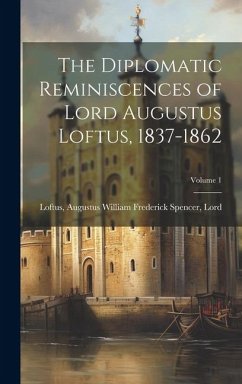
The Hanoverian Dimension in British History, 1714-1837

PAYBACK Punkte
56 °P sammeln!
The first systematic history of this 'Hanoverian dimension' of Great Britain.For more than 120 years (1714(?)1;1837) Great Britain was linked to the German Electorate, later Kingdom, of Hanover through Personal Union. This made Britain a continental European state in many respects, and diluted her sense of insular apartness. The geopolitical focus of Britain was now as much on Germany, on the Elbe and the Weser as it was on the Channel or overseas. At the same time, the Hanoverian connection was a major and highly-controversial factor in British high politics and popular political debate. This...
The first systematic history of this 'Hanoverian dimension' of Great Britain.
For more than 120 years (1714(?)1;1837) Great Britain was linked to the German Electorate, later Kingdom, of Hanover through Personal Union. This made Britain a continental European state in many respects, and diluted her sense of insular apartness. The geopolitical focus of Britain was now as much on Germany, on the Elbe and the Weser as it was on the Channel or overseas. At the same time, the Hanoverian connection was a major and highly-controversial factor in British high politics and popular political debate. This volume is the first systematically to explore the subject by a team of experts drawn from the UK, US and Germany. They integrate the burgeoning specialist literature on aspects of the Personal Union into the broader history of eighteenth- and early nineteenth-century Britain. Never before has the impact of the Hanoverian connection on British politics, monarchy and the public sphere, been so thoroughly investigated.
Table of contents:
Notes on contributors; 1. Introduction. Hanover: the missing dimension Brendan Simms; 2. The Hanoverian Nexus: Walpole and the Electorate Jeremy Black; 3. Pitt and Hanover Brendan Simms; 4. George III and Hanover Torsten Riotte; 5. The Hanoverian dimension in early ninenteenth century British politics Christopher Thompson; 6. The end of the dynastic union, 1815(?)1;1837 Mijndert Bertram; 7. The University of Göttingen and the Personal Union, 1737(?)1;1837 Thomas Biskup; 8. The confessional dimension Andrew Thompson; 9. Hanover and the public sphere Bob Harris; 10. Dynastic perspectives Clarissa Campbell Orr; 11. British Maritime Strategy and Hanover 1714(?)1;1763 Richard Harding; 12. Hanover in mid-eighteenth-century Franco-British geopolitics H. M. Scott; 13. Hanover and British republicanism Nicholas B. Harding.
For more than 120 years (1714(?)1;1837) Great Britain was linked to the German Electorate, later Kingdom, of Hanover through Personal Union. This made Britain a continental European state in many respects, and diluted her sense of insular apartness. The geopolitical focus of Britain was now as much on Germany, on the Elbe and the Weser as it was on the Channel or overseas. At the same time, the Hanoverian connection was a major and highly-controversial factor in British high politics and popular political debate. This volume is the first systematically to explore the subject by a team of experts drawn from the UK, US and Germany. They integrate the burgeoning specialist literature on aspects of the Personal Union into the broader history of eighteenth- and early nineteenth-century Britain. Never before has the impact of the Hanoverian connection on British politics, monarchy and the public sphere, been so thoroughly investigated.
Table of contents:
Notes on contributors; 1. Introduction. Hanover: the missing dimension Brendan Simms; 2. The Hanoverian Nexus: Walpole and the Electorate Jeremy Black; 3. Pitt and Hanover Brendan Simms; 4. George III and Hanover Torsten Riotte; 5. The Hanoverian dimension in early ninenteenth century British politics Christopher Thompson; 6. The end of the dynastic union, 1815(?)1;1837 Mijndert Bertram; 7. The University of Göttingen and the Personal Union, 1737(?)1;1837 Thomas Biskup; 8. The confessional dimension Andrew Thompson; 9. Hanover and the public sphere Bob Harris; 10. Dynastic perspectives Clarissa Campbell Orr; 11. British Maritime Strategy and Hanover 1714(?)1;1763 Richard Harding; 12. Hanover in mid-eighteenth-century Franco-British geopolitics H. M. Scott; 13. Hanover and British republicanism Nicholas B. Harding.














